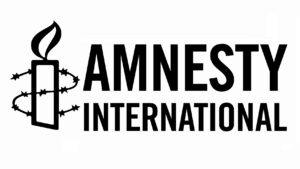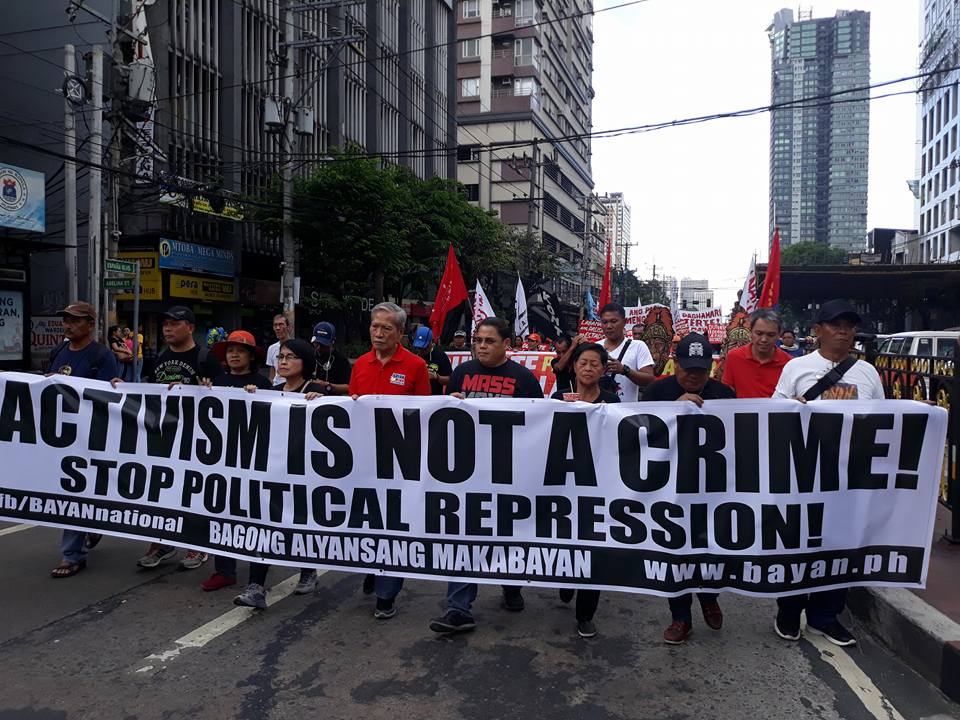Amnesty International is deeply concerned that human rights defenders and political activists have been charged with perjury in a case initiated by a government official, especially since the charges stem from these groups’ plea for court protection against threats and harassment. The organisation calls on the government to drop the charges, and cease all attacks against human rights groups and political activists.
On 2 March 2020, a Quezon City prosecutor found probable cause to file charges of perjury against ten members of the human rights group Karapatan Alliance Philippines, women’s group Gabriela, and the church-based Rural Missionaries of the Philippines. The charges stem from a complaint initiated by National Security Adviser Hermogenes Esperon Jr., who was named as a respondent in the three groups’ previous petition for a writ of amparo (protection order) and habeas data (access to information). Perjury, a bailable offence, is punishable under Philippine law by imprisonment from six months to two years and two months.

Amnesty International is alarmed that human rights defenders and political activists are facing constant threats and undue restrictions to their rights to freedom of expression and association as a result of their efforts to seek protection against such threats. Not only is the government preventing activists from doing their work, it is also depriving them of access to legal recourse.
The continuing restrictions on human rights work occur within a larger context of serious human rights violations. The government continues to pursue its “war on drugs” even though tens of thousands have been killed by the police and armed individuals, many of whom are believed to have been working for the police. Human rights defenders, activists, lawyers, opposition politicians and others critical of the government and its policies have been vilified, harassed, sued and arbitrarily detained, while others have been killed in still-unresolved attacks that seem to bear a clear connection to their work. Repressive legislative proposals, such as the anti-terror bill recently passed by the Philippine Senate and bills reviving the death penalty, further pose significant threats to human rights in the country.
Amnesty International calls on the government to drop the perjury charges against the ten activists, who were seeking protection from harassment and threats. Instead of using the law to further intimidate its critics, the government should fulfil its obligation to ensure a safe and enabling environment in which they are able to continue their work without fear of reprisals. The worsening situation of human rights defenders and political activists in the country must be addressed, including by ensuring that the criminal justice system is not misused to target and harass critical voices. ###
Background
The human rights group Karapatan, women’s group Gabriela, and church-based Rural Missionaries of the Philippines (RMP) filed a petition for a writ of amparo and habeas data in May 2019, claiming “worsening attacks, terrorist-tagging by the Philippine military and the ongoing smear campaign against human rights defenders.” On 28 June 2019, the Philippine Court of Appeals denied the petition. The court had only held one hearing in the case, in which it barred them from presenting evidence of the threats and attacks against them. According to Karapatan, one piece of evidence that was supposed to be presented was the testimony of its staff member Ryan Hubilla, who was gunned down, along with Nelly Bagasala, also a Karapatan staff member, on 15 June 2019.
In their petition, the groups named among the respondents National Security Adviser Hermogenes Esperon Jr., who in turn filed perjury complaints against members of the groups for supposedly including false information in the petition. In September 2019, an assistant city prosecutor upheld the complaint against Sister Elenita Bernardo from RMP, while dismissing the complaints against the other defendants. Esperon subsequently filed a motion for reconsideration of the dismissed complaints. On 2 March 2020, the Quezon City prosecutor sustained the motion and found probable cause to charge ten individuals with perjury. Some of these individuals have already posted bail ahead of the issuance of arrest warrants.
Karapatan, Gabriela and RMP have all been “red-tagged” in the past: accused by government officials or unknown individuals of links to communist armed groups. “Red-tagging” has become a means to endanger, silence and threaten activists, leaving them at risk of harassment and attacks.
Source: Amnesty International



